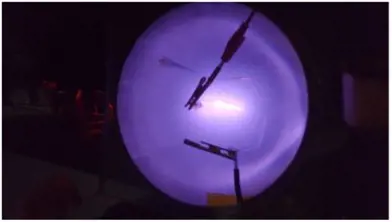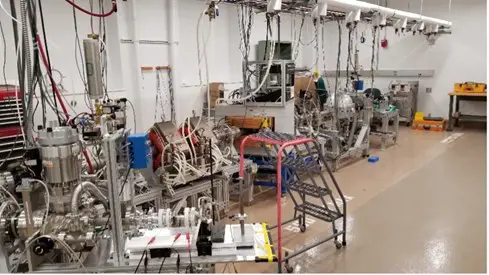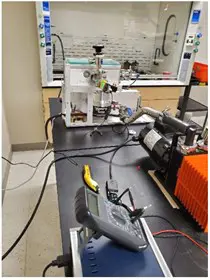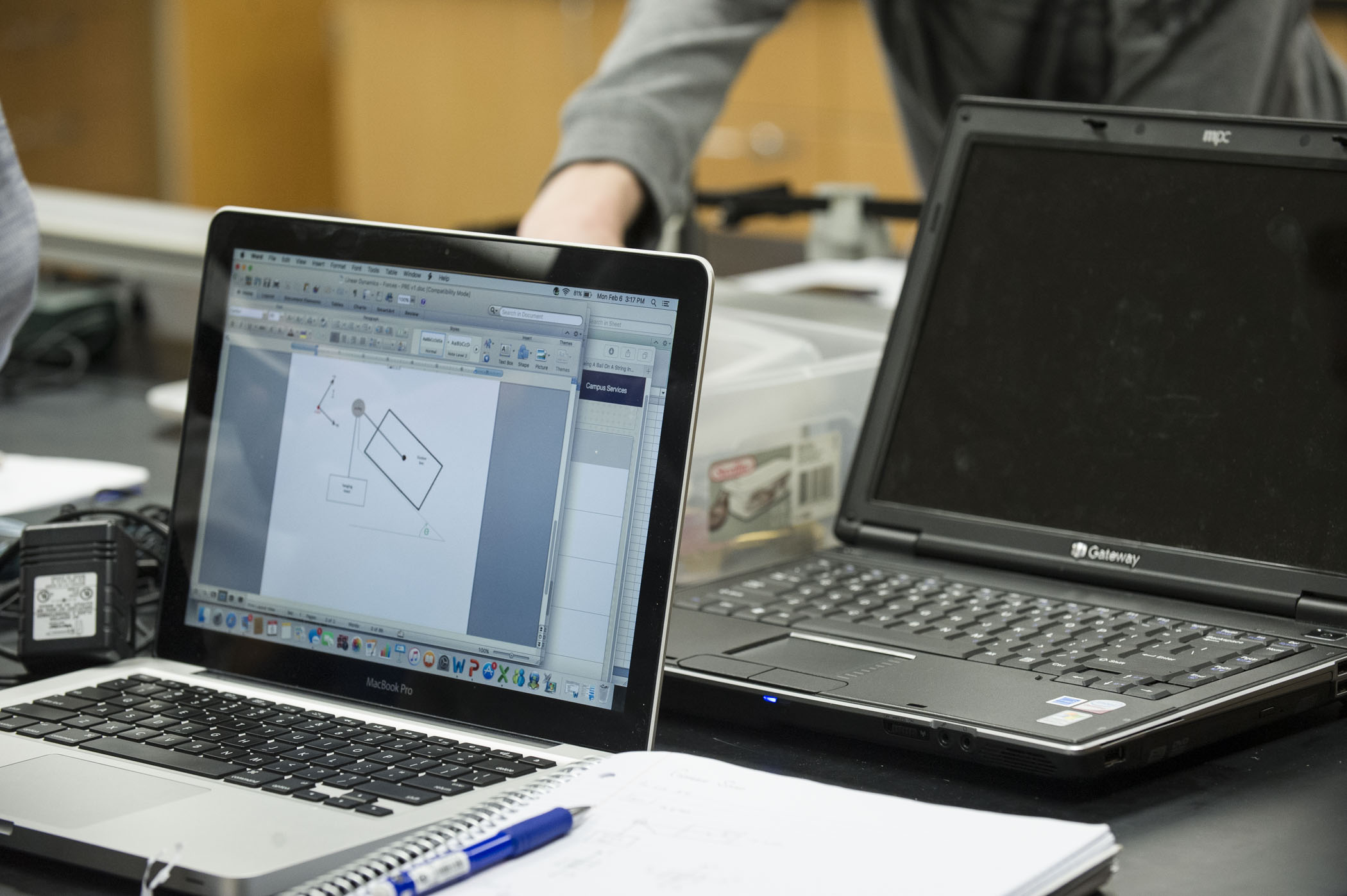The physics program offers opportunities in experimental condensed matter physics, experimental nuclear physics, theoretical astrophysics, radio astronomy, physics education and computational (bio)physics. Our physics faculty are excited to work with undergraduate students on their projects!
Do not hesitate to reach out to the physics faculty and find out more about our projects!
Experimental Nuclear Physics (Dr. Kent Scheller)
While coming to USI as an experimental physicist studying nuclear astrophysics, my experimental background has enabled me to conduct research alongside students:
In radioactive sources in geological formations, in plasma formation in the upper atmosphere, in proton-induced x-ray emission studies, and in sputtering of thin films on optical surfaces.



Experimental Condensed Matter Physics (Dr. Kenny Purcell)
My research focuses on the properties of materials in extreme conditions of high pressure, high magnetic field and low temperatures. The physics of the electrons inside of a material is quite complicated and driven by many interactions. In these extreme conditions we suppress some of the interactions so that we may focus our efforts on understanding specific interactions. Experimental work takes place at the National High Magnetic Field Laboratory in Tallahassee, Fl and students have accompanied me in the past.
Particle-Astrophysics (Dr. Eric Greenwood)
Dr. Greenwood’s research primarily focuses on a number of sub-fields of particle-astrophysics. These topics have ranged from alternative and naive ways of quantizing gravity, which has led to interesting results in black hole physics and toward the resolution of the information loss paradox (Quantum gravitational collapse, Hawking radiation as seen by an infalling observer), particle production in cosmological de Sitter space, alternative models to explain the apparent accelerated expansion of the universe as well as experimental test to falsify this model, and finally to the topology of the universe. Outside of these topics, Dr. Greenwood has also worked with Berry Phases, which are real measurable phases that change a quantum state in a cyclic system. Currently, along with thesis students, Dr. Greenwood is establishing a quantum mechanics (quantum optics) lab. The lab will allow for the measurement of several different quantum properties of photons such as the entanglement of photons, quantum erasers, coincidence of photons, geometrical (Berry) phases, and more. He is currently looking for students to help establish the lab and conduct experiments.
Astrophysics (Dr. Matt Merlo)
My research interests are focused on astrophysics, which is exploring the physics concepts behind the different objects that make up our universe. I have experience in extragalactic astrophysics (physics underlying objects outside our galaxy), especially looking at a class of galaxies called active galactic nuclei. Besides the physics side of things, astrophysics also provides training in data processing (taking raw data from a telescope and cleaning it to a point where science can be done on it), data analysis (looking at the processed data from a telescope and describing what that data shows), and computer programing, which is need for both the processing and analysis. For undergraduates interested in doing research in astrophysics, there is a large amount of data available to the public from many different telescopes, including databases from the Hubble Space Telescope and other major NASA missions and the experience in the processing and analysis of that data would benefit any student looking to pursue a graduate degree in any type of physics.
